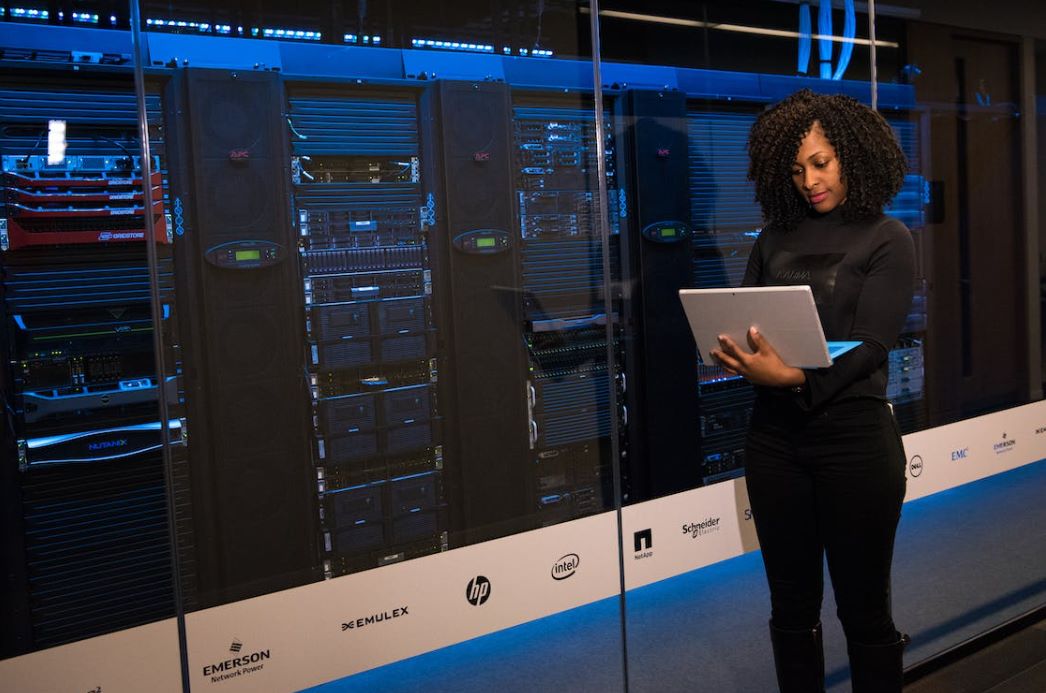In comparison, the area of data science appears to have a brighter future in Australia than that of artificial intelligence. These two phrases are gaining more and more traction in the sector as we go deeper into the world of technology. Consider how ubiquitous the internet has become. But what exactly do they imply, and how do their meanings contrast with one another?
Artificial intelligence (AI) can be defined as the simulation of human intelligence in robots that have been taught to think and learn like humans. On the other hand, data science is concerned with the process of deriving knowledge from data through the application of statistical and computational techniques.
Data science seeks to unearth hidden patterns and insights from data so that decisions may be made in a more informed manner. In contrast, artificial intelligence focuses on the creation of intelligent computers that can carry out activities without the need for human interaction.
This article will discuss the primary distinctions between artificial intelligence (AI) and data science, their influence on the employment landscape in Australia, and the knowledge, abilities, and credentials necessary to pursue a career in any of these areas. In order to provide you a full grasp of the topic at hand, we will also be drawing on the observations and viewpoints expressed by well-known authorities in the field.
Are you interested in discovering which industry has the best potential for growth in Australia? Are you interested in becoming a successful professional in the field of artificial intelligence or data science? If so, you may be curious about the required skills and credentials. If your answer is yes, then continue reading as we compare and contrast the field of data science with artificial intelligence in Australia.
Let's get started!
Quick Links To Online Data Science Courses
UNIVERSITY OF NEW SOUTH WALES SYDNEY
GRADUATE CERTIFICATE IN DATA SCIENCE
- Duration: As little as 8 months
- 4 courses
- Study Intakes: January, March, May, July, September and October
RMIT ONLINE
ONLINE GRADUATE CERTIFICATE IN DATA SCIENCE
- Part-time 8 months intensive
- AU$3,840 per course (2023)
- Next intake:
January, March, May, July, September, October
JAMES COOK UNIVERSITY AUSTRALIA
GRADUATE DIPLOMA OF DATA SCIENCE (INTERNET OF THINGS) ONLINE
- 16 months, Part-time
- 8 (One subject per each 7-week study period)
- $3,700 per subject, FEE-HELP is available
University Of Technology Sydney
Applied Data Science for Innovation (Microcredential)
- 6 weeks
- Avg 14 hrs/wk
- $1,435.00
Current State of AI and Data Science in Australia

In Australia, Artificial Intelligence (AI) and Data Science are already well-established fields, and a large number of universities now offer specialised courses and degrees in these areas.
In addition, many businesses and organisations are actively using artificial intelligence (AI) and data science to solve complex problems, such as enhancing the quality of healthcare, maximising the efficiency of supply chain management, and lessening the impact on the environment. Atlassian, Canva, and Cochlear are just a few of the important companies operating in the Australian market.
What is Artificial Intelligence (AI)?
Definition
On the other hand, the term "artificial intelligence" refers to the creation of intelligent machines that are capable of completing activities that would normally need the intelligence of a human being. The creation of algorithms and models that are able to analyse data and make judgements based on that data is at the heart of artificial intelligence (AI). Artificial intelligence is utilised in a wide variety of contexts, ranging from chatbots and virtual assistants to autonomous vehicles and drones.
Skills Required
A solid foundation in mathematics, statistics, and computer science is required for anyone who aspires to have a successful career in artificial intelligence (AI). An individual who wishes to become a Machine Learning Engineer needs to have a strong command of programming languages such as Python, Java, and C++, as well as previous experience working with applications such as TensorFlow, Keras, and PyTorch.
Applications
A wide variety of applications of AI are found in a variety of different fields of work. The following are some of the most common applications of artificial intelligence in Australia:
- Chatbots powered by AI are used in the healthcare industry to diagnose ailments and offer general health advice.
- Chatbots powered by AI that can give advice on personal finances and automate investment choices are being developed for the finance industry.
- Robots driven by artificial intelligence are used in manufacturing and are capable of performing sophisticated assembly jobs and quality control.
- Chatbots driven by artificial intelligence can assist customers with their online purchasing and deliver individualised recommendations to those customers.
There has been an increase in the demand for professionals who specialise in Artificial Intelligence, which has led to an increase in the average income of an AI Engineer in Australia, which ranges between AUD 70,000 and AUD 160,000 per year. Opportunities exist in many different industries, including healthcare, banking, and e-commerce, which bodes well for the growth prospects of artificial intelligence (AI).
What is Data Science (DS)?
Definition
The process of gleaning insights and information from a body of data is referred to as data science. It entails the utilisation of mathematical and statistical methods for the purpose of data analysis and interpretation, as well as the development of prediction models that may be utilised for the purpose of making educated judgements. Data science is utilised in a wide variety of business sectors, ranging from the retail and entertainment industries to the medical and financial sectors.
Skills Required
A solid educational foundation in fields such as mathematics, statistics, and computer science is required for anyone who aspires to have a successful career as a data scientist. A Data Scientist needs to have a strong command of programming languages such as Python, R, and SQL, in addition to having prior experience working with applications such as Tableau, PowerBI, and Apache Spark.
Applications
DS can be found in a diverse assortment of applications across a variety of business sectors. Applications of DS that are particularly well-liked in Australia include the following:
- In the field of healthcare, DS is utilised for the purpose of analysing big datasets consisting of patient records in order to locate potential risk factors for diseases and generate individualised treatment strategies.
- DS is utilised in the financial industry to construct predictive models that estimate stock values, identify fraudulent activity, and automate credit decision-making.
- DS is utilised in the marketing process to perform data analysis on client profiles and the development of specific marketing initiatives.
- In the transportation industry, DS is utilised to optimise routes in order to cut down on travel times as much as possible.
There has been an increase in the need for people with expertise in Data Science, and the annual income of a Data Scientist in Australia can range anywhere from AUD 70,000 to AUD 150,000 on average. There is a great amount of room for expansion in the field of data science, and opportunities may be found in a variety of industries, including retail, online commerce, banking, and healthcare.
Key Differences between AI and DS

There is a distinction between Artificial Intelligence (AI) and Data Science, despite the fact that both phrases are sometimes used interchangeably. Artificial intelligence (AI) is a subfield of computer science that focuses on developing software that enables computers to carry out activities that would typically need the intelligence of a human.
On the other side, data science is the process of gleaning insights and information from data through the application of statistical analysis, algorithmic approaches to machine learning, and other methods.
Focus
Data science is concerned with gleaning insights and knowledge from data, whereas AI is concerned with the development of intelligent computers that are capable of carrying out tasks that would normally need the intelligence of a human being.
Techniques
Data science is the process of analysing and interpreting data via the use of mathematical and statistical methods, whereas AI is the process of developing algorithms and models that are capable of analysing data and making decisions based on that data.
Applications
Data science is utilised in a wide variety of business sectors, ranging from the retail and entertainment industries to the medical and financial sectors. On the other side, artificial intelligence is put to work in a more constrained variety of contexts, such as in virtual assistants and self-driving cars.
Skill Sets
The majority of the time, those who work in data science have educational backgrounds in mathematics, statistics, and computer science. They are proficient in data modelling and analysis, in addition to data visualisation and communication skills.
On the other hand, those who develop artificial intelligence often have educational backgrounds in computer science and engineering. They are knowledgeable in areas such as computer vision, natural language processing, and machine learning.
Industry Applications
Both artificial intelligence (AI) and deep learning (DS) are fast becoming more popular in Australia, and many different sectors are investing in these technologies in order to better their operations. The following is a list of some of the sectors where artificial intelligence and data science are having a big impact:
Healthcare
The medical field is quickly becoming one of the most important sectors for the application of AI and data science in Australia. Tools driven by artificial intelligence, such as chatbots, medical diagnosis systems, and predictive analytics, are increasingly being implemented in clinical settings in an effort to improve patient outcomes, lower healthcare costs, and improve clinical decision-making.
For instance, the Australian Digital Health Agency is working on a system powered by AI that can predict hospitalisation events for patients with chronic conditions. This will enable physicians to intervene early and thereby prevent difficulties from occuring.
Finance
The Australian financial services sector has quickly integrated artificial intelligence (AI) and data science to automate routine activities, improve fraud detection, and personalise the client experience.
For instance, banks use machine learning algorithms to analyse customer data and provide personalised financial advice, and insurers use predictive analytics to identify fraudulent claims and mitigate risks. Both of these practices are being carried out by financial institutions. In addition, the Australian Securities and Investments Commission is implementing AI in order to investigate allegations of insider trading and market manipulation.
Retail
Retailers in Australia are making use of artificial intelligence (AI) and data science to gain insights into the behaviour of their customers, improve inventory management, and improve the online shopping experience.
Chatbots that are powered by AI are being utilised to provide customer care, and machine learning algorithms are being used to recommend products to customers based on their interests and preferences. In addition, businesses are making use of data analytics in order to improve the efficiency of their supply chain operations and cut expenses.
Agriculture
Agriculture is a large industry in Australia, and the application of AI and data science has the potential to transform how farmers conduct their businesses completely.
For instance, drones equipped with AI might be used to monitor crop health and detect outbreaks of pests and diseases, while predictive analytics could be used to optimise the amount of irrigation and fertiliser that was applied. In addition, robots fueled by AI can be programmed to carry out labour-intensive operations like harvesting and trimming, hence lowering the cost of labour and increasing productivity.
Mining
The mining industry in Australia is another sector that has been affected by the rise of AI and data science. The use of artificial intelligence (AI)-powered technologies in the mining industry, such as autonomous trucks, drones, and robots, is helping to raise safety, boost productivity, and cut costs. For the transportation of iron ore, for example, the global mining giant Rio Tinto has been deploying driverless trucks, which has both decreased the likelihood of accidents and increased production.
Future of AI and DS in Australia
Job Prospects
In the next years, it is anticipated that there will be a major increase in the demand for workers skilled in AI and DS in Australia. According to a survey compiled by the Australian Computer Society, the demand for data analysts, data scientists, and specialists in machine learning is anticipated to increase by more than 200% by the year 2024.
Potential for Growth
The field of artificial intelligence and data science is expected to continue expanding at an exponential rate in Australia, with a projected annual growth rate of 21.5% between the years 2021 and 2027, according to the projections of industry specialists.
This growth will be driven by a number of factors, including increasing investment in research and development, the availability of high-quality data, and the growing demand for AI and Data Science skills across a wide range of industries. Other factors that will also play a role in this growth include the availability of high-quality data.
Challenges Facing the Industry
There are a number of obstacles that experts working in the field of artificial intelligence and data science will need to overcome, despite the fact that there are a great number of prospects for growth in this business.
One of the most significant problems is a lack of qualified people, particularly in more specialised fields like machine learning and natural language processing. This is one of the most significant obstacles. There are also issues over the privacy and security of data, in addition to the potential for AI and data science to be exploited in unethical or harmful ways.
Opportunities for Professionals
In spite of these obstacles, there are a lot of intriguing prospects awaiting specialists in the field of artificial intelligence and data science in Australia. AI and data science are being utilised to address complicated issues and promote innovation in a number of important growth areas, including healthcare, finance, and agriculture. These are some of the significant growth areas. In addition, there is an increasing demand for individuals with expertise in artificial intelligence (AI) as well as data science in a wide variety of business sectors, including retail, manufacturing, and transportation, amongst others.
Trends and Predictions
Some of the trends and forecasts for the future of artificial intelligence and data science in Australia are as follows:
- The following is a list of some of the prevalent trends and forecasts for the upcoming years. Increasing reliance on chatbots driven by AI in several aspects of customer service and support
- Increased application of AI and DS in the medical field, with the goal of bettering the health of patients
- Research and development efforts in artificial intelligence (AI) and data science (DS) have received increased funding from the Australian government and commercial organisations.
- An increase in the level of collaboration between professionals working in AI and DS and other experts, such as those working in healthcare and education.
Bottom Line
In sum, Artificial Intelligence (AI) and Data Science are two sectors that are expanding quickly in Australia, each of which has a significant untapped potential for both innovation and employment. They share many similarities, but each is best suited for a specific purpose, despite their close relationship.
The subject of computer science, known as artificial intelligence, focuses on creating machines capable of carrying out tasks that would normally need the intelligence of a human being. Visual perception, the ability to recognise spoken words, the ability to make decisions, and the ability to translate languages are all included in these skills.
The 1960s were the beginning of the development of artificial intelligence. On the other hand, Data Science is the process of gleaning insights and information from data through the application of a wide variety of tools and methods, such as statistical analysis, machine learning, and data visualisation. This is accomplished by applying these tools and methods to the data.
Both artificial intelligence and data science are considered to be of great relevance in a variety of Australian businesses, including the healthcare sector, the financial sector, and the manufacturing sector. Those interested in pursuing professions in these fields have access to a wealth of educational options and research possibilities thanks to the abundance of academic institutions and research centres dedicated to these fields.
It is anticipated that the demand for qualified people in the fields of AI and Data Science will continue to rise as technological advancements are made. So, suppose you are interested in any of these disciplines. In that case, it is necessary to keep abreast of the most recent advances and innovations to maintain your competitive edge in the employment market.
What aspects of the future of Artificial Intelligence and Data Science in Australia most excite you, and how do you intend to contribute to this rapidly expanding field of study?
Content Summary
- In Australia, Artificial Intelligence (AI) and Data Science are already well-established fields, and a large number of universities now offer specialised courses and degrees in these areas.
- Artificial intelligence is utilised in a wide variety of contexts, ranging from chatbots and virtual assistants to autonomous vehicles and drones.
- There has been an increase in the demand for professionals who specialise in Artificial Intelligence, which has led to an increase in the average income of an AI Engineer in Australia, which ranges between AUD 70,000 and AUD 160,000 per year.
- Opportunities exist in many different industries, including healthcare, banking, and e-commerce, which bodes well for the growth prospects of artificial intelligence (AI).
- Data science is utilised in a wide variety of business sectors, ranging from the retail and entertainment industries to the medical and financial sectors.
- DS can be found in a diverse assortment of applications across a variety of business sectors.
- In the healthcare field, DS is utilised to analyse big datasets consisting of patient records to locate potential risk factors for diseases and generate individualised treatment strategies.
- There has been an increase in the need for people with expertise in Data Science, and the annual income of a Data Scientist in Australia can range anywhere from AUD 70,000 to AUD 150,000 on average.
- There is a great amount of room for expansion in the field of data science, and opportunities may be found in a variety of industries, including retail, online commerce, banking, and healthcare.
- There is a distinction between Artificial Intelligence (AI) and Data Science, despite the fact that both phrases are sometimes used interchangeably.
- Both artificial intelligence (AI) and deep learning (DS) are fast becoming more popular in Australia, and many different sectors are investing in these technologies in order to better their operations.
- The medical field is quickly becoming one of the most important sectors for the application of AI and data science in Australia.
- Tools driven by artificial intelligence, such as chatbots, medical diagnosis systems, and predictive analytics, are increasingly being implemented in clinical settings in an effort to improve patient outcomes, lower healthcare costs, and improve clinical decision-making.
- The Australian financial services sector has quickly integrated artificial intelligence (AI) and data science to automate routine activities, improve fraud detection, and personalise the client experience.
- Agriculture is a large industry in Australia, and the application of AI and data science has the potential to transform how farmers conduct their businesses completely.
- The mining industry in Australia is another sector that has been affected by the rise of AI and data science.
- The use of artificial intelligence (AI)-powered technologies in the mining industry, such as autonomous trucks, drones, and robots, is helping to raise safety, boost productivity, and cut costs.
- In the next years, it is anticipated that there will be a major increase in the demand for workers skilled in AI and DS in Australia.
- The field of artificial intelligence and data science is expected to continue expanding exponentially in Australia, with a projected annual growth rate of 21.5% between 2021 and 2027, according to the projections of industry specialists.
- One of the most significant problems is a lack of qualified people, particularly in more specialised fields like machine learning and natural language processing.
- There are also issues over the privacy and security of data, in addition to the potential for AI and data science to be exploited in unethical or harmful ways.
- In spite of these obstacles, there are a lot of intriguing prospects awaiting specialists in the field of artificial intelligence and data science in Australia.
- AI and data science are being utilised to address complicated issues and promote innovation in a number of important growth areas, including healthcare, finance, and agriculture.
- In addition, there is an increasing demand for individuals with expertise in artificial intelligence (AI) as well as data science in a wide variety of business sectors, including retail, manufacturing, and transportation, amongst others.
- Research and development efforts in artificial intelligence (AI) and data science (DS) have received increased funding from the Australian government and commercial organisations.
- In sum, Artificial Intelligence (AI) and Data Science are two sectors that are expanding quickly in Australia, each of which has a significant untapped potential for both innovation and employment.
- They share many similarities, but each is best suited for a specific purpose, despite their close relationship.
- Both artificial intelligence and data science are considered to be of great relevance in a variety of Australian businesses, including the healthcare sector, the financial sector, and the manufacturing sector.
- Those interested in pursuing professions in these fields have access to a wealth of educational options and research possibilities thanks to the abundance of academic institutions and research centres dedicated to these fields.
- It is anticipated that the demand for qualified people in the fields of AI and Data Science will continue to rise as technological advancements are made.
- In that case, it is necessary to keep abreast of the most recent advances and innovations to maintain your competitive edge in the employment market.
Frequently Asked Questions
AI involves the simulation of human intelligence in machines, while DS involves the extraction of insights from data.
Some popular applications of AI in Australia include healthcare, finance, manufacturing, and retail.
Some popular applications of DS in Australia include healthcare, finance, marketing, and transportation.
The demand for AI and DS professionals is expected to grow significantly, with increased investment in research and development by the Australian government and private organisations.
AI-powered chatbots are being used to provide support to students in online learning environments, while DS is being used to analyse student data and identify areas where extra support may be needed.





